Transcend SSD320 & SSD720 (256GB) Review
by Kristian Vättö on January 25, 2013 11:31 AM ESTAnandTech Storage Bench 2011—Light Workload
Our new light workload actually has more write operations than read operations. The split is as follows: 372,630 reads and 459,709 writes. The relatively close read/write ratio does better mimic a typical light workload (although even lighter workloads would be far more read centric).
The I/O breakdown is similar to the heavy workload at small IOs, however you'll notice that there are far fewer large IO transfers:
| AnandTech Storage Bench 2011—Light Workload IO Breakdown | ||||
| IO Size | % of Total | |||
| 4KB | 27% | |||
| 16KB | 8% | |||
| 32KB | 6% | |||
| 64KB | 5% | |||
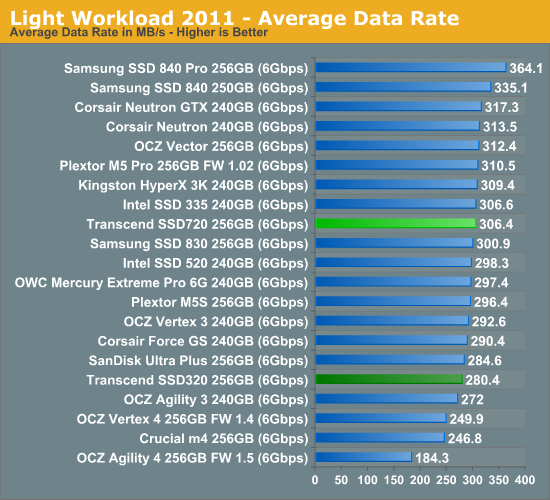
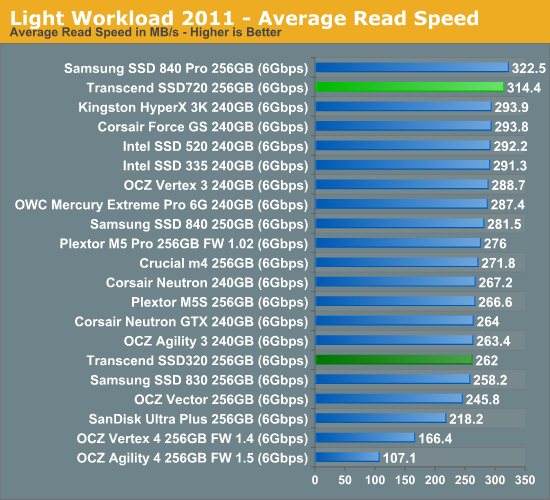
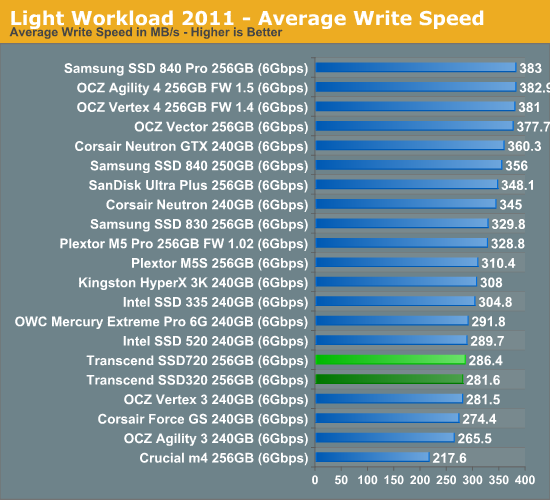

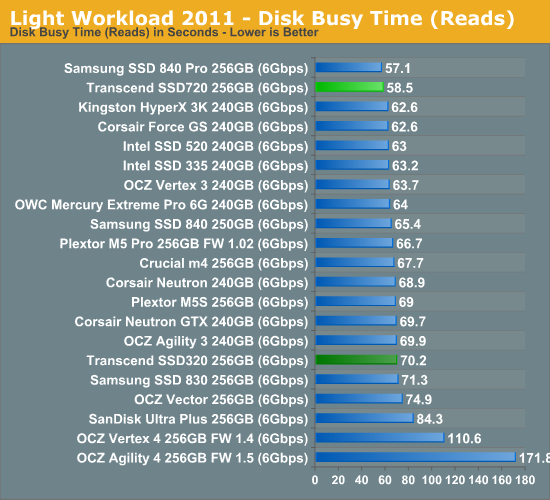
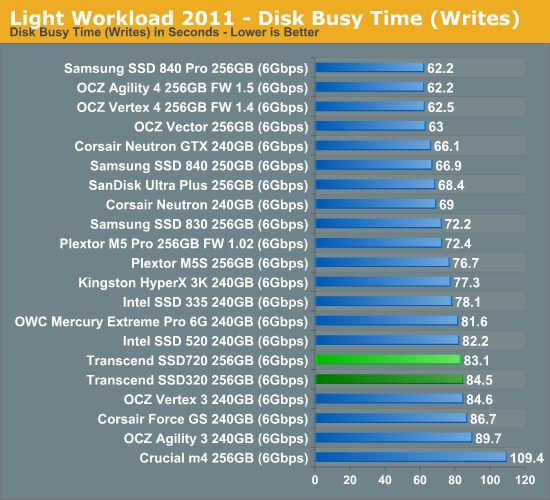










34 Comments
View All Comments
paul878 - Friday, January 25, 2013 - link
For a second I thought they were 320G and 720G drives.Azurael - Friday, January 25, 2013 - link
So what's the difference between a Sandisk Extreme SSD and a Transcend SSD720? How many more identical SSDs can the market support?Flying Goat - Friday, January 25, 2013 - link
If you tried to skip the drives over a lake, you'd find that one was most likely designed with aerodynamics in mind, while the other was not. Sadly, we're just never going to see the sort of truly complete feature comparison at AnandTech that covers that sort of thing. :)gammaray - Friday, January 25, 2013 - link
i dont know, but i got the SanDisk extreme 240gb home and its ultra fast and paid 160$ on sale for it :Dembzyk - Sunday, January 27, 2013 - link
9.5mm vs 7mm heightEgg - Friday, January 25, 2013 - link
The Transcend SSD720 256GB achieves a busy time of just over half that of the Samsung SSD 840 Pro 256GB, and it's missing a decimal place.This seems highly suspect.
Kristian Vättö - Saturday, January 26, 2013 - link
Oh, you're right, there was a typo. It should've been 362 instead of 162. Fixed! :-)iwod - Friday, January 25, 2013 - link
SSD1st Gen - SATA ; Response Time Reduction Compared to HDD
2nd Gen - SATA II; Higher Seq Read Write
3rd Gen - SATA II; Better Random IO
4th Gen - SATA III; Overall Improvement to both Seq and Random
5th Gen? I think Next Gen we need SATA Express and something similar to Intel's Consistent I/O Performance.
Tech-Curious - Saturday, January 26, 2013 - link
Eh, there's still a fair amount of head room on the SATA 3 interface. Wouldn't expect PCIe to become the norm for at least another two generations.Tech-Curious - Saturday, January 26, 2013 - link
Sorry, misread your comment, iwod. Still, even if sequential speeds remain more or less stagnant, there's a lot of room left to improve random read/write with SATA 3.